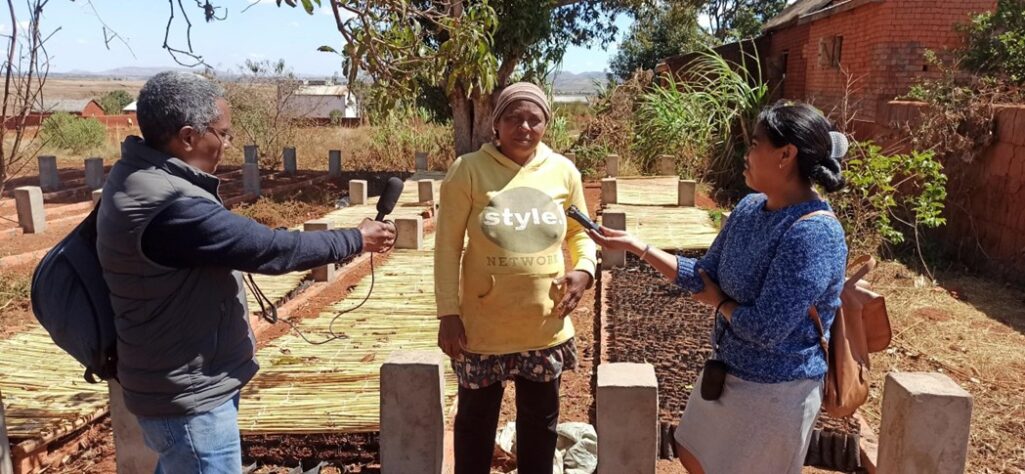Start a dialogue!
As part of the YenKasa Africa radio initiative, we are thrilled to share with you this week’s feature, where we delve into the vital topic of the Role of family farming in promoting sustainable food systems and informing about relevant activities related to the UNDFF at the policy, institutional, and grassroots levels. Discover valuable insights and expert advice by reading our feature and then dive deeper by listening to the recorded program on the YenKasa Africa website in Malagasy. Don’t miss this opportunity to enhance your knowledge and empower your agricultural practices. Happy reading and listening!
A recent program airing on Radio Don Bosco and National Radio of Malagasy in the local language (Malagasy) sparked crucial discussions on the pivotal role of family farming in fostering sustainable food systems in Madagascar. Supported by Réseau SOA and PNFDDSA, the program aimed to illuminate the various activities associated with the UN Decade of Family Farming (UNDFF) across political, institutional, and grassroots levels.
Madagascar family farming is primarily oriented towards production for self-consumption, as approximately 75% of rural household food production is self-consumed (INSTAT, 2011). Thus, family farms primarily produce for their own consumption, and production strategies developed by household heads aim to ensure food needs are met, which is often seen as a limitation or even a barrier to economic growth. Family farming is predominantly subsistence-oriented with diversified food production, while the often-promoted model corresponds to specialized and commercially oriented farms. However, these food security strategies find their rationale in the risks faced by both farm operators in their production choices and household heads in meeting their family’s needs. These risks, both natural and economic, are significant: price fluctuations, particularly low remuneration for labor allowed by production prices, significant information asymmetry, isolation and lack of market access, unfavorable price ratios between agricultural product prices at production / input prices, agricultural product prices at production / food prices in the production area, are all factors that do not encourage producers to heavily engage in commercial production. However, as data attest, family farming also accounts for the largest share of marketed production.
The International Year of Family Farming, celebrated in 2014, drew attention to the role of family farmers in promoting food security and nutrition, and more broadly, in building more inclusive and equitable societies. It strengthened the collective understanding of the challenges faced by family farmers and prompted political will and partnership formation to address them.
The Madagascar National Committee for Family Farming (CNAF), established in 2015 following the International Year of Family Farming in 2014, engaged various stakeholders in the development of the National Action Plan for the UN Decade of Family Farming.
Listen to the radio programme
RADIO DON BASCO
NATIONAL RADIO OF MALAGASY
Access all the Madagascar Productions here (Synopsis are in French):
You can access all other radio productions here:

